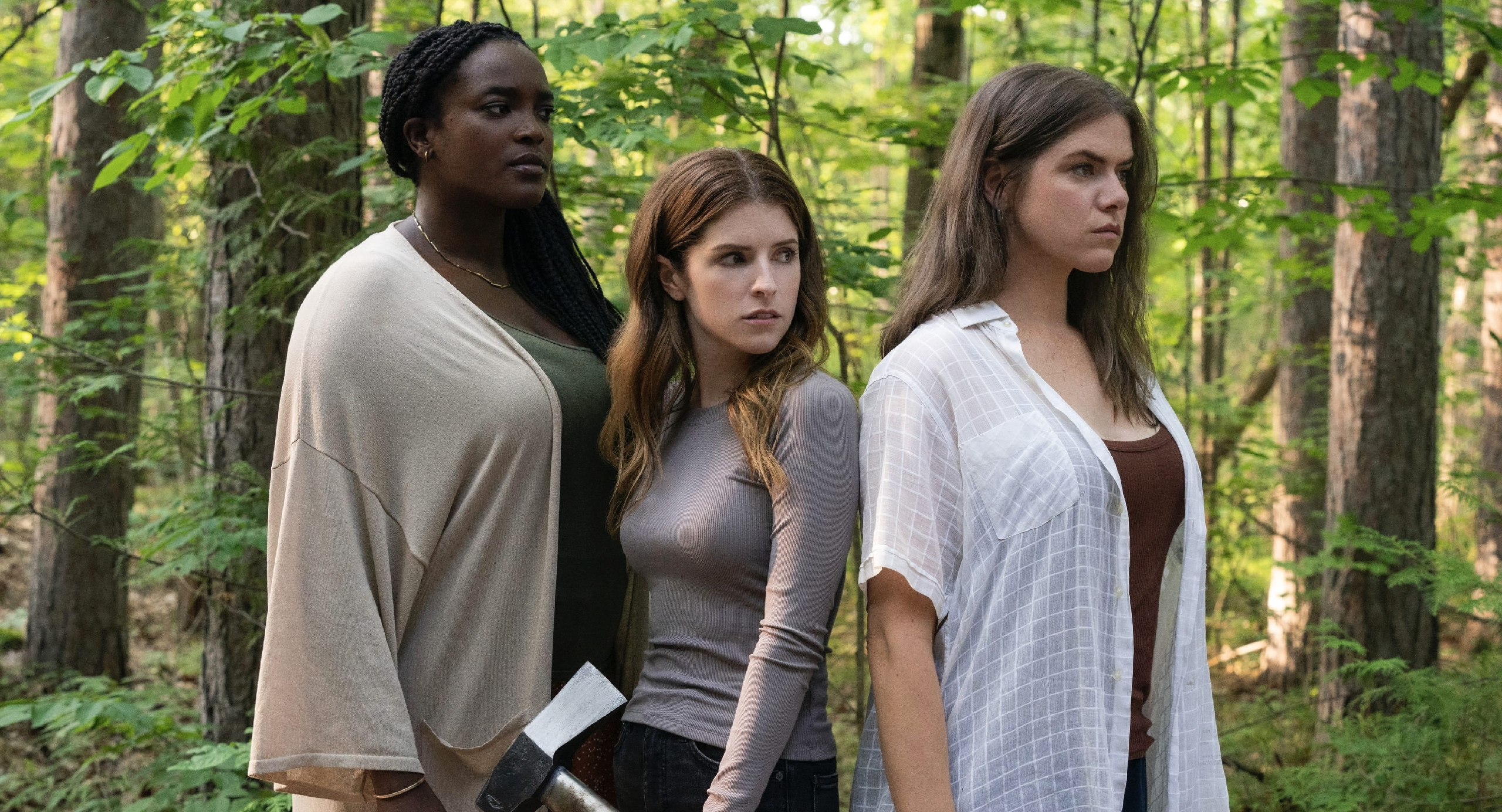Alice, Darling – Film Review
Published August 20, 2023

Pushed to the breaking point by Simon, her psychologically abusive boyfriend, Alice rediscovers the essence of herself and gains some much-needed perspective while on vacation with two close girlfriends. However, Simon’s vengeance is as inevitable as it is shattering, and once unleashed, it tests her strength, her courage, and the bonds of deep-rooted friendships.
Alice, Darling, directed by Mary Nighy, delves into the complex web of psychological abuse and the journey of self-discovery. With Anna Kendrick’s captivating performance as Alice, the film presents a narrative that tackles codependency, friendship, and the strength to break free from toxic relationships. While it possesses moments of raw emotion and character development, there are areas where the film could have pushed its boundaries further to create a more impactful viewing experience.
The film’s opening introduces us to Alice, played by Anna Kendrick, trapped in a psychologically abusive relationship with her boyfriend, Simon, portrayed by Charlie Carrick. The story takes a turn when Alice joins her two best friends, Tess (Kaniehtiio Horn) and Sophie (Wunmi Mosaku), for a vacation. This journey of self-assessment and growth forms the core of the film’s narrative.
One of the film’s strengths lies in its portrayal of the insidious nature of psychological abuse. Simon’s manipulative tactics are effectively communicated through subtle gestures, controlling behavior, and the constant fear that Alice experiences. Anna Kendrick’s performance captures the nuances of Alice’s emotional turmoil, making her a relatable and empathetic protagonist. The internal battle she fights is palpable, making her journey all the more resonant.
Director Mary Nighy’s approach to conveying Alice’s trauma is both delicate and impactful. The recurring theme of Alice’s hair-touching and flinching at her phone’s notifications serves as a constant reminder of her distress. These visual cues, coupled with Kendrick’s performance, create a compelling portrayal of Alice’s emotional state.
The dynamics among Alice, Tess, and Sophie are central to the story’s progression. Kaniehtiio Horn and Wunmi Mosaku deliver standout performances, fleshing out Tess and Sophie as fully realized characters. Their genuine concern for Alice’s well-being and their dedication to helping her break free from her toxic relationship add depth to the film’s exploration of friendship and support.
The film skillfully builds tension through the gradual reveal of Alice’s past and the circumstances that led her into Simon’s clutches. The plot takes an intriguing turn when Alice, Tess, and Sophie stumble upon a flyer for a missing girl, Andrea. This discovery serves as a catalyst for Alice’s inner turmoil and her subsequent decision to reassess her life. The missing girl’s case not only adds an element of mystery but also symbolizes Alice’s yearning for freedom and a chance at a new beginning.
Where Alice, Darling occasionally falters is in its execution of certain plot points. The film has moments of ambiguity that, while perhaps intended to convey emotional complexity, may leave some viewers puzzled. A more deliberate exploration of Alice’s backstory and her initial attraction to Simon could have added depth to her character arc and provided greater context to her struggles.
Additionally, while the film successfully conveys the emotional toll of Alice’s relationship, it occasionally veers towards melodrama. Some scenes, particularly those involving Alice’s panic attacks, border on excessive, diluting the impact of these moments. A more restrained approach to these sequences could have maintained the emotional weight while avoiding potential overindulgence.
The film’s climax is a mixed bag. The confrontation between Alice and Simon at the dinner table is intense, fueled by emotional turmoil and the tension that has been building throughout the story. However, the resolution of this confrontation feels somewhat rushed, and Simon’s exit lacks the catharsis that the audience might be craving after witnessing his manipulation. The pivotal scene where Alice chooses to break free from Simon’s control by rejecting his car offers a powerful and satisfying moment of liberation. Yet, the impact could have been even greater with a more nuanced exploration of Simon’s character.
The film’s finale, which sees Alice riding the paddleboard and diving into the lake, serves as a symbolic representation of her journey toward self-discovery and liberation. The visual metaphor, combined with the hauntingly beautiful cinematography, encapsulates the film’s underlying themes of breaking free and finding strength in oneself.
In terms of performances, Anna Kendrick’s portrayal of Alice is undoubtedly the film’s anchor. Her ability to convey the complexity of Alice’s emotions keeps the audience engaged even during the film’s weaker moments. Kaniehtiio Horn and Wunmi Mosaku offer strong supporting performances, infusing the narrative with warmth and authenticity. However, Charlie Carrick’s portrayal of Simon, while effective in conveying his manipulative tendencies, could have benefited from further exploration to make him a more fully realized antagonist.
Alice, Darling, directed by Mary Nighy, is a commendable exploration of psychological abuse, codependency, and the strength to break free. Anna Kendrick’s performance shines, portraying Alice’s journey with vulnerability and authenticity. The film’s emphasis on friendship and support adds depth to the narrative, while its handling of psychological abuse is both delicate and impactful. Despite occasional melodramatic moments and missed opportunities for character exploration, the film succeeds in delivering a poignant message of empowerment and self-discovery. Alice, Darling is a captivating journey that resonates with those who have experienced the bonds of toxic relationships and the power of friendship in overcoming them.
